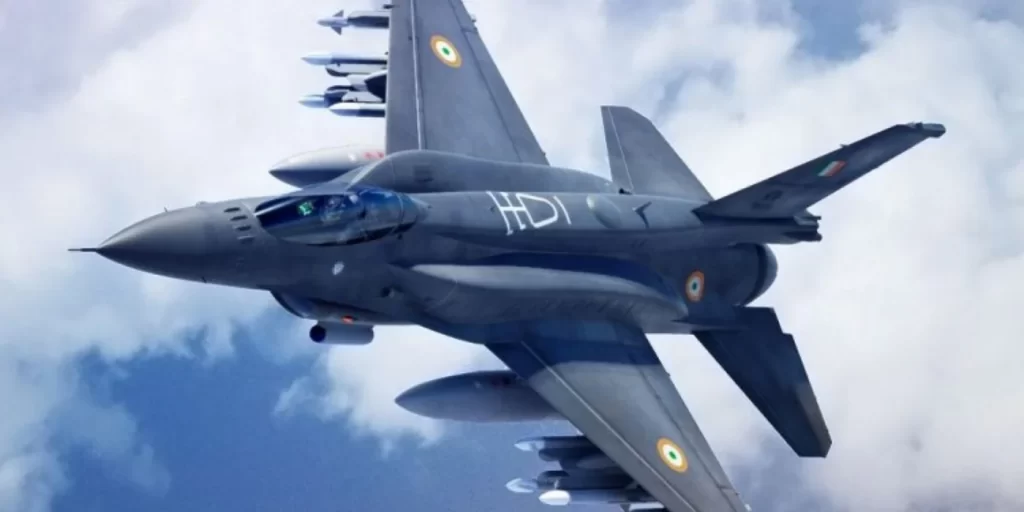Underlining that it’s bullish on Indian Air Force’s proposed Multi-Role Fighter Aircraft (MRFA) program, US Aviation giant Lockheed Martin says it has already invested in India and its F-21 aircraft fits perfectly between the indigenous light Combat Aircraft (LCA) TEJAS and the heavier lot of Rafale and the Su-30MKIs.
“We hope for AON (Acceptance of Necessity) and an RFP (Request for Proposal) for MRFA. We have been aligned and positioning for that for a number of years to bring the best capability that we can offer,” William Blair, Lockheed Martin’s India vice-president and chief executive, said.
He said that the upcoming Aero India in Bangalore will have a full cockpit demonstrator of the F-21 aircraft that the company is offering under the MRFA program.
Lockheed Martin, which had been hard-selling its latest variant of the F-16, known as Block 70, pitched the F-21 for the IAF program in 2019.
The pitch came on the back of IAF’s RFI, or a request for information, in 2018 after its previous bid to procure 126 fighter jets was scrapped, with the Narendra Modi government instead opting for 36 Rafale fighters in fly-away condition.
Blair said that his F-21, which will be competing with several other fighters, including the Rafale and American firm Boeing’s F-15 EX, fits in very well with the MRFA requirements.
“We have been interfacing with the IAF for a number of years. We understand the requirements and the F-21 has a very unique capability with a triple missile launcher adapter and lower life cycle cost,” he said.
For Lockheed, the MRFA is the catalyst for making fighters in India, he said.
Asked how the single-engine fighter fits in when India already has the TEJAS, he said it fits in between the LCA and the heavier and larger twin-engine fighters.
“It actually fits very well and it’s available. It’s something that can be delivered in parallel to the long-term programs (India’s indigenous program),” he said.
Blair said that the F-21 has 30 per cent lower lifecycle cost and carbon footprint than the twin-engine fighters.
“It has unmatched capability in terms of capability to cost ratio. India operates the light, medium and heavier combat aircraft, both single and twin engine and the F-21 fits in perfectly,” he said.
‘Already Invested In India’
In 2016, the government and the IAF had begun working on bringing out a tender for single-engine fighter aircraft, keeping the cost in mind.
However, the defence ministry sprang a surprise by questioning the need for a single-engine foreign fighter when the indigenous Light Combat Aircraft (LCA) program was on. It was then that the IAF retuned its need to bring out an RFI in April 2018, bringing Lockheed and several other players into the fray.
Blair said that Lockheed Martin has already invested in India and has created a chair of Tier 1 and Tier 2 suppliers to the F-21 program and its range of helicopters and aircraft.
He was referring to the production of 157 cabins of the S-92 helicopters in India for its global orders. This meant that every single S-92 helicopter delivered in the world, including the one in which the US President travels in, comes from India.
Lockheed has also sourced 187 empennages of the C-130 J aircraft from India through its joint venture with the TATA group even though only 12 aircraft have been delivered to India.
“We qualified the wing production of the F-16s AND F-21s with TATA,” Blair said. “It demonstrates the technical capability not just of TATA but also Tier 1 and Tier 2 suppliers. It is a major proof of capabilities. We see it as the first investment in advance of the MRFA requirement,”
The TATA-Lockheed Martin joint venture can now bid for orders for manufacturing the wings of the F-16s, the first fuel-carrying, 9G-capable, interchangeable fighter wing of an F-16 aircraft.
“You have to be willing to invest upfront. We are not going to say what we will produce in India. We are already producing in India. We are already aligned with Atmanirbhar Bharat,” he said.
He said the F-21 program in India will become part of the USD 160 billion global sustainment market. Besides the wings of the F-16s, the production of cabins of the S-92 and the empennages for the C-130 J aircraft are being undertaken in India in advance of the requirement.
“We do that out of opportunity and not under obligation,” he said.


